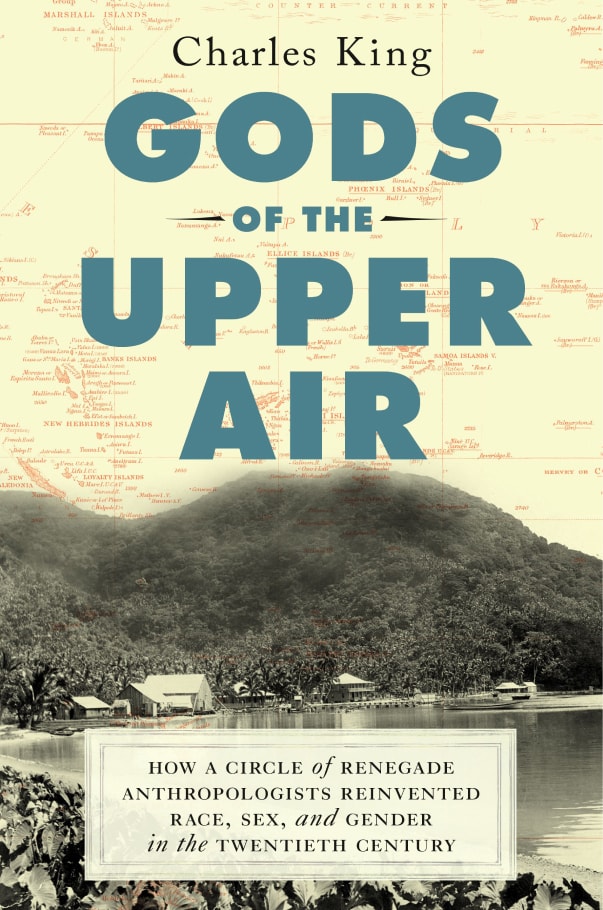
Developed by Gabrielle M.W. Bychowski, Anisfield-Wolf SAGES Fellow, Case Western Reserve University
Recent attacks on healthcare and critical race theory might seem unrelated at first glance, yet students of history are aware of the intersections of ableism and white supremacy within American public policy. The dominant image of the “Great White Men” of history imagines these men as exceptionally strong, able-bodied, and intelligent. At the same time, models of health have been built on studies and norms about middle to upper-class white men. If classrooms are to approach history from an anti-racist pedagogy, one must necessarily become well versed in disability studies. Fortunately for teachers, a recent Anisfield-Wolf Book Award winner offers a powerful textbook for teachers.
The 2020 Anisfield-Wolf winner for nonfiction, Gods of the Upper Air: How a Circle of Renegade Anthropologists Reinvented Race, Sex, and Gender in the Twentieth Century, delivers a narrative that will cause many readers to rethink their view of American history. Historian Charles King walks readers from nineteenth century armchair historians praising the civilizing force of colonialism through the rise of eugenic racial hierarchies to the emergence of cultural relativity within modern Anthropology.
Franz Boaz and his team operate as the throughline of King’s history. Students can track the steps of Boaz’s career as he made the case for a cultural relativist approach to anthropology. This begins with Boaz studying native peoples first from an assumption of their primitivity and later from respect for their highly specialized practices and talents. For many years Boaz faced resistance from established historians who followed a traditional race theory that asserted white people as the center of human advancement. Over time, Boaz achieved some professional security with which he could reshape the field and promote scholars from diverse backgrounds (among them women and LGBTQ academics) who would in time make their own significant changes to history and the definition of humanity, including critical race theory.
One scholar nurtured by Boaz went on to win an Anisfield-Wolf Book Award. Zora Neale Hurston’s Dust Tracks on the Road provides an excellent companion to Gods of the Upper Air. In my own seminar, I find it useful to break up the expansive history King provides with films and other books that fill out the world (and worldviews) that the class is studying. Highlighting the writing of Zora Neale Hurston demonstrates how Boaz was not so much promoting a single vision of the world as encouraging a multifaceted approach to humanity that celebrated the viewpoints of scholars of color.
Other texts that help expand upon the themes of the course are Kevin Young’s Bunk: The Rise of Hoaxes, Humbug, Plagiarists, Phonies, Post-Facts, and Fake News and the 2017 film The Greatest Showman. Both tell the story of P.T. Barnum as illustrative of how White men could rewrite history and create new racial categories for their own benefit in the nineteenth century. While Young’s book deconstructs these false versions of history and bogus racial beliefs, the film performs the same humbug and hoaxes that Barnum did by offering a false version of events with the hope that audiences will enjoy the lie so much they do not care whether or not it is true. Teaching this pair early on helps set up the traditions that Boaz, Hurston and the new anthropology were fighting against.
The PBS documentary, The Eugenics Crusade, also pairs well with the middle chapters of the book, highlighting the ways that defining humanity according to white supremacist models also promotes ableism. Students will learn how eugenic attempts at defining “the perfect human” spurred policies that saw people with disabilities, working class people, women, LGBTQ people, immigrants, non-Christians, and people of color targeted for sterilization, institutionalization, or even death.
The evolution of museums serves as another touchstone for teaching about the history of race as a category. Gods of the Upper Air describes early museums in rich detail as collections of wealthy white colonists and travelers, arranged according to their perception of cultural progress: ranging from barbarism to civilization. Following a narrative of racial superiority that presupposed all peoples followed similar stages of development, Euro and Euro-American museums collected items from diverse cultures together without care as to the differences of cultural, geographic or historical context. Over time, as new modes of anthropology became incorporated into the social sciences, museums shifted to culturally specific displays that resisted the colonial impulse to create hierarchies between different societies.
Overall, this seminar has been one of my most popular and always results in a waitlist. Students become captivated by the ways science, religion, and politics were all active co-conspirators in an agenda to promote white supremacy and ableism in the United States. By exploring the histories of eugenics and anthropology, the class deconstructs persisting beliefs about race and disability.